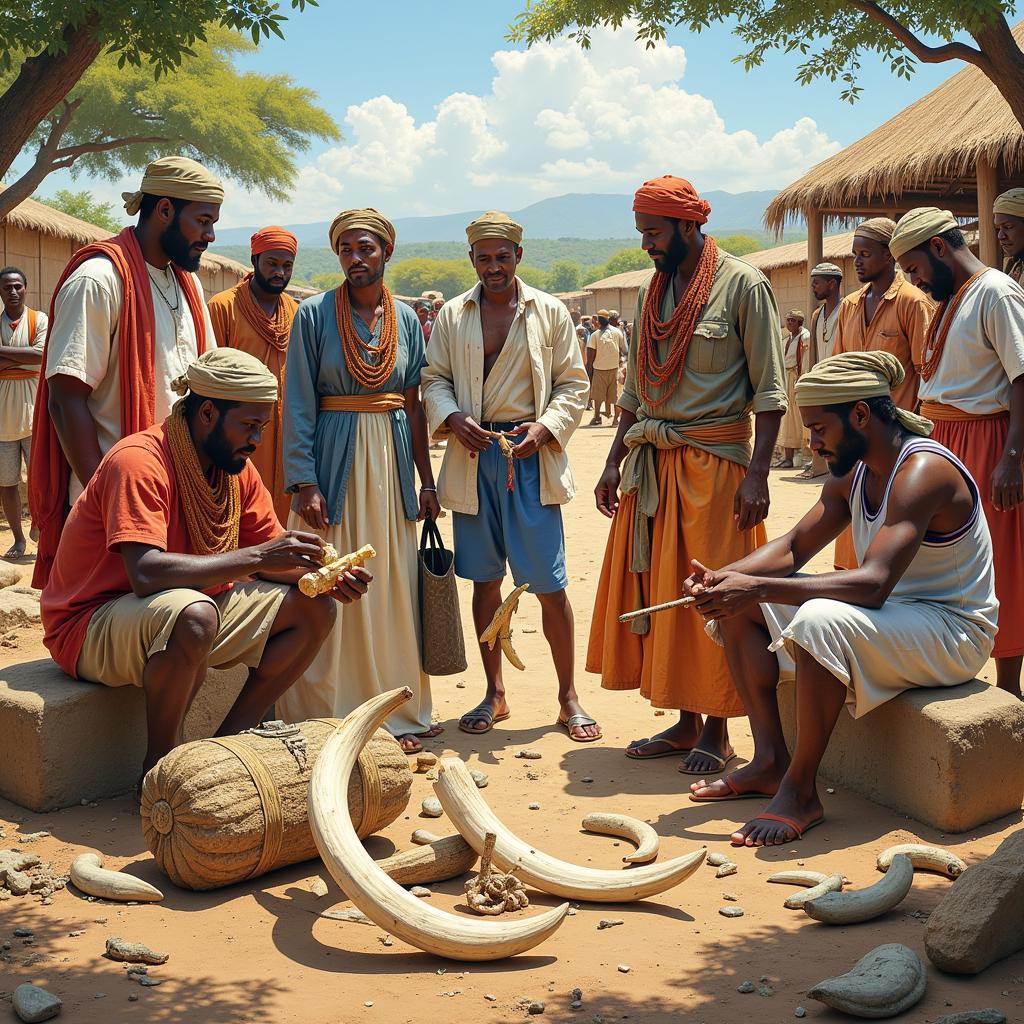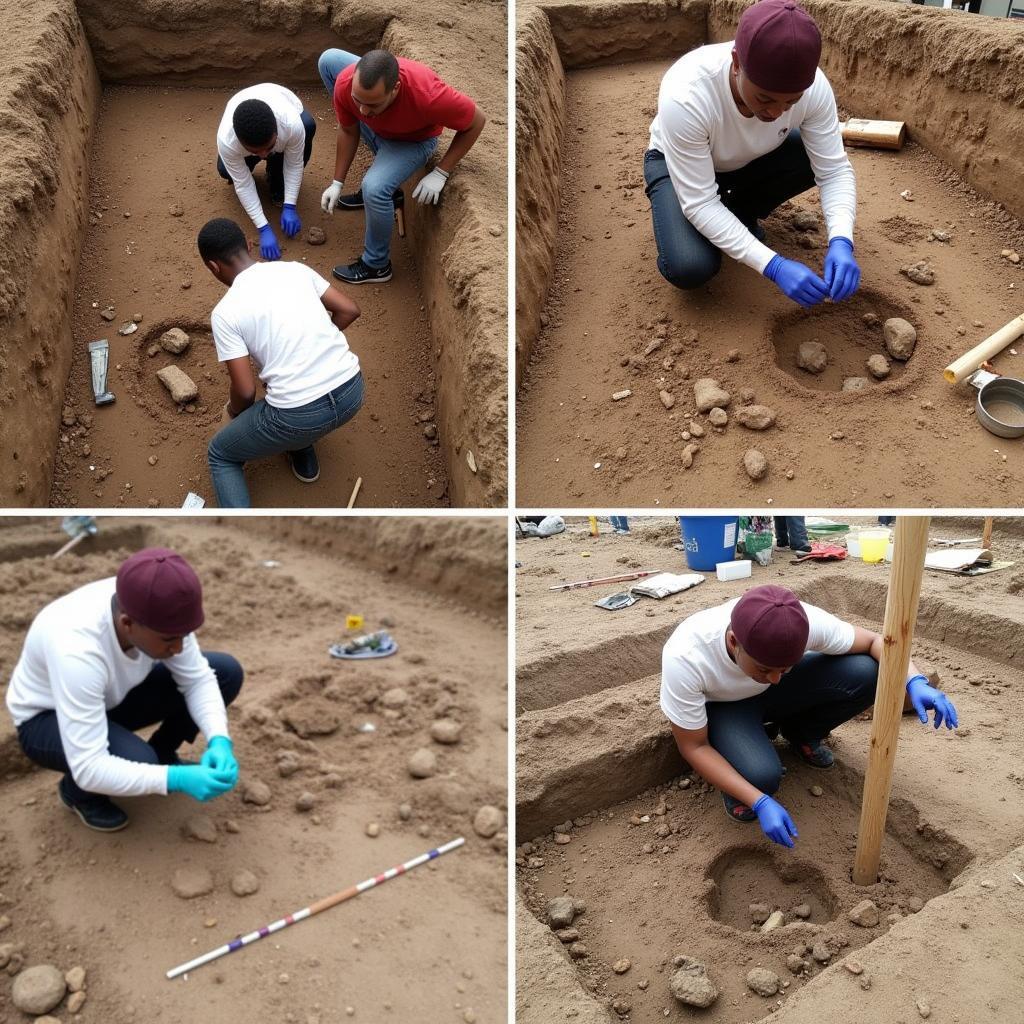The Plight of the African Kid Girl Facing Polio
The heartbreaking image of an African Kid Girl Polio patient serves as a stark reminder of the devastating impact this disease can have, particularly in vulnerable populations. Polio, a highly infectious viral disease, primarily affects young children and can lead to irreversible paralysis, even death. While significant progress has been made in eradicating polio globally, challenges remain, especially in certain regions of Africa. Understanding the specific challenges faced by young girls affected by polio in Africa is crucial to effectively combating this disease and providing the necessary support and care.
Understanding Polio’s Impact on African Kid Girl Polio Survivors
Polio’s impact on young girls in Africa goes beyond the immediate physical effects. The societal implications are often profound, especially in communities where disability can lead to stigmatization and exclusion. Girls with polio may face barriers to education, employment, and social participation, further perpetuating a cycle of poverty and inequality. This section delves deeper into the multifaceted challenges these young girls encounter. Access to healthcare, rehabilitation services, and assistive devices is often limited, particularly in rural areas. This lack of access can hinder their ability to achieve their full potential and live fulfilling lives.
The cultural nuances surrounding disability in some African communities can also exacerbate the challenges faced by girls with polio. Misconceptions and stigma associated with disability can lead to social isolation and discrimination, further marginalizing these young girls.
Combating Polio: Vaccination Efforts and Community Engagement
Effective polio eradication strategies require a multi-pronged approach, with vaccination at its core. Global initiatives, such as the Global Polio Eradication Initiative (GPEI), have made substantial progress in reducing polio cases worldwide. However, reaching every child, especially in remote and conflict-ridden areas, remains a significant challenge. Community engagement plays a vital role in ensuring vaccination campaigns are successful. Building trust with local communities and addressing concerns about vaccines are essential for achieving high vaccination coverage.
Education is also paramount in the fight against polio. Educating families about the importance of vaccination, the risks of polio, and the available support services empowers them to make informed decisions and protect their children. Sustainable change requires a collaborative effort involving governments, healthcare organizations, communities, and individuals.
Empowering African Kid Girl Polio Survivors: Access to Education and Opportunities
Empowering girls with polio requires addressing the systemic inequalities that limit their opportunities. Ensuring access to inclusive education is crucial for enabling them to develop their skills and reach their full potential. Schools need to be equipped with accessible infrastructure and trained personnel to support the unique needs of students with disabilities. Furthermore, vocational training and employment opportunities can empower these young women to become self-reliant and contribute to their communities.
Dr. Amina Mohamud, a renowned pediatrician in Nairobi, Kenya, emphasizes the importance of education: “Education is the key to unlocking the potential of these young girls. It empowers them to overcome the challenges they face and lead fulfilling lives.”
Providing access to assistive devices, such as wheelchairs and mobility aids, can significantly improve the quality of life for girls with polio. These devices enhance their mobility, independence, and participation in social activities.
african kid girl polio black and white photo
A Future Free from Polio: Hope and Resilience
While the challenges are undeniable, there is reason for hope. The global commitment to eradicating polio has yielded remarkable progress, and continued efforts hold the promise of a future free from this devastating disease. The resilience and strength of African girls with polio are inspiring. They are not defined by their disability but by their determination to overcome adversity and build a brighter future for themselves and their communities.
Professor Femi Adebayo, a leading expert in disability rights at the University of Lagos, Nigeria, states, “The resilience of these young girls is a testament to the human spirit. We must continue to support them and create a society that values inclusivity and equality for all.”
The fight against polio requires a sustained global effort. By working together, we can ensure that all children, including girls in Africa, have the opportunity to live healthy and fulfilling lives, free from the threat of this preventable disease.
Conclusion
The plight of the African kid girl facing polio is a complex issue with far-reaching consequences. Addressing this challenge requires a multifaceted approach that focuses on vaccination, community engagement, access to education and opportunities, and fostering inclusivity. The global community must continue to support efforts to eradicate polio and empower young girls affected by this debilitating disease.
FAQ
- What is polio?
- How is polio transmitted?
- What are the symptoms of polio?
- Is there a cure for polio?
- How can I help in the fight against polio?
- What support services are available for children with polio in Africa?
- How can I learn more about polio eradication efforts?
Scenarios
- Scenario 1: A mother in a rural African village is hesitant to vaccinate her daughter against polio due to misinformation circulating in her community.
- Scenario 2: A young girl with polio in an urban area faces discrimination in school and struggles to access educational resources.
- Scenario 3: A community health worker is working to educate families about the importance of polio vaccination and overcome vaccine hesitancy.
Further Exploration
For more information on related topics, please visit our website for articles on child health in Africa, disability rights, and global health initiatives.
Need assistance? Contact us 24/7: Phone: +255768904061, Email: [email protected], or visit us at: Mbarali DC Mawindi, Kangaga, Tanzania.


